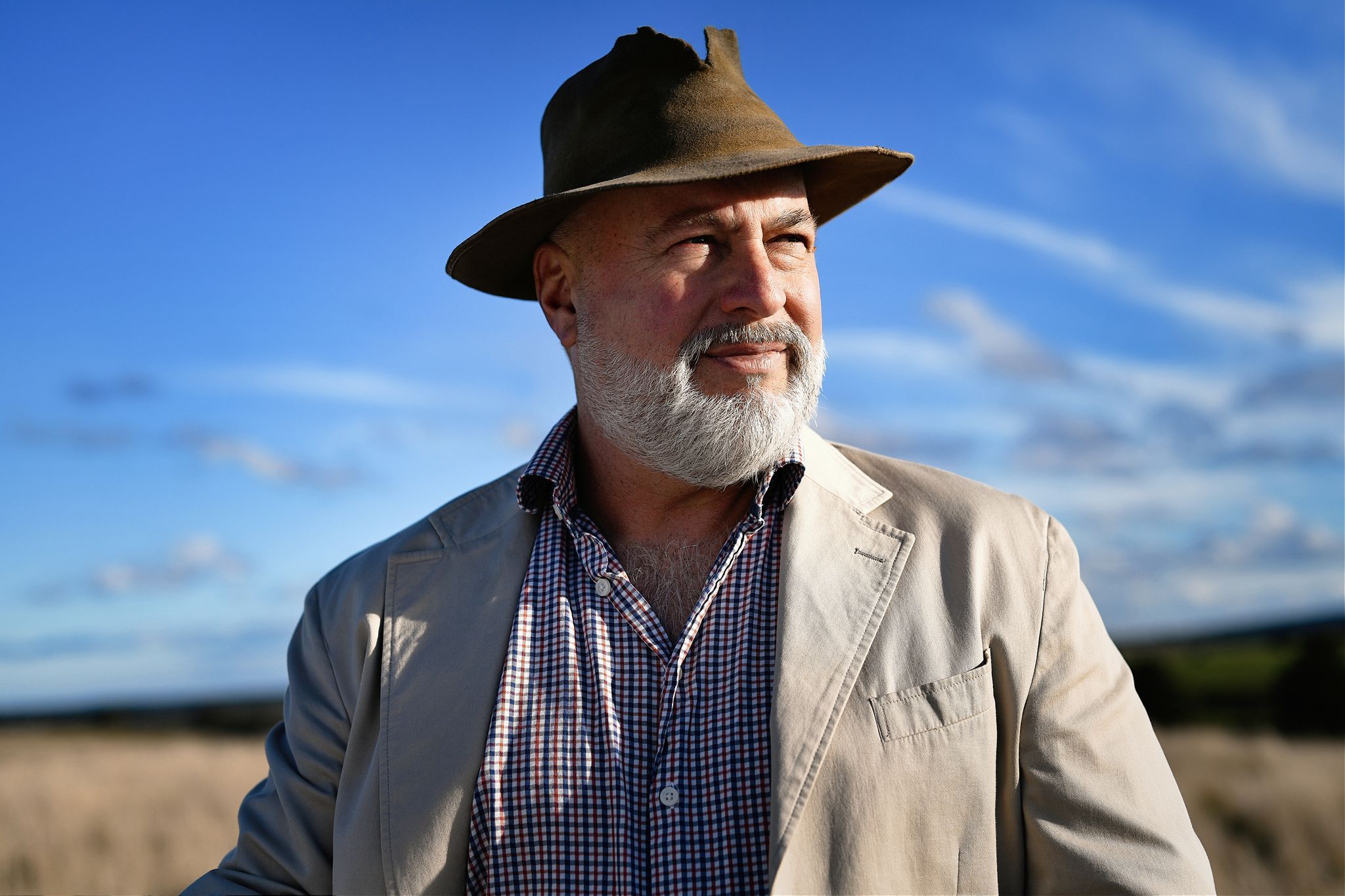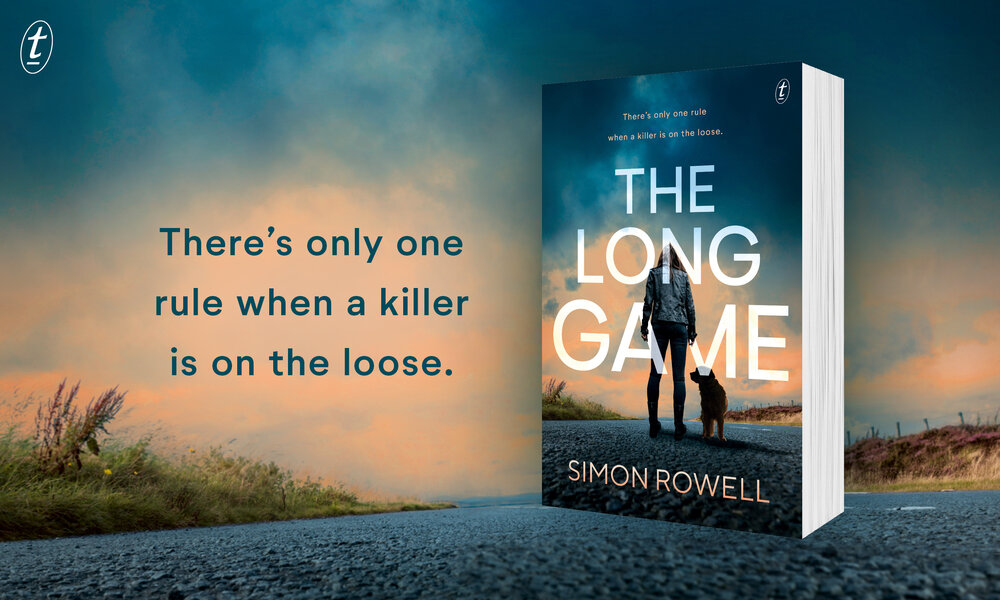
I’ll start at the beginning, but will not linger there long. When I was around fourteen, buoyed by a sense of grandiosity fed by a healthy dose of hormones, I decided I wanted to be a writer. A beret-wearing, hipster-before-there-were-hipsters type of writer. What genre or style I couldn’t say, which should tell you that my ambition was more about image than substance. I was a reader, which was a start, with a bookshelf filled with Hemingway and Brontë. In the end, though, I just proceeded to daydream my way through a third-rate public high school in 80’s Adelaide, where we would be given ‘The Catcher in the Rye’ to study year after year by teachers who had thrown in the towel years before. There were no inspirational, ‘Dead Poets Society’-style teachers in sight.
Fast-forwarding through jobs in the oil fields, building a water pipeline though a desert, managing pubs and being a tour guide, at twenty-five I went to university to study business. By thirty-five I was a partner in a company in Melbourne, as my wife and I established a good life. The idea of becoming a writer faded back into the shadows.
Then in 2009 my step-brother, Paul, was diagnosed with cancer. Paul was in his mid-thirties, very recently married to the love of his life and full of joie de vivre. Yet the diagnosis was terminal. The shock of this rocked all of us. Whilst we tried to remain hopeful, Paul battled his way through over eighty rounds of chemotherapy over the next three and a half years. He passed away a few days short of this fortieth birthday in 2013.
Paul’s death slapped me hard in the side of the head. No longer could ideas be put aside for later, as later could be snatched away. In 2014, my wife and I sold up in Melbourne and moved to the country, where the air was fresh and we could enjoy some space. We rescued poddy calves, orphaned sheep and chickens and settled easily into country life. Paul’s passing was still fresh and I was continually reassessing my life in the shadow of the fact that I wasn’t immortal and the clock continued to click onwards.
In 2016 I decided to finally start on a manuscript. The plot came to me relatively quickly, but before I started writing I refined it for a couple of months, until I was comfortable the structure was working. As I had no formal creative writing education, I read on lot on the craft of writing, as well as listening to relevant podcasts. Not one of these sources had all the answers, but I took enough information from each, so that I was reasonably confident to start putting words on paper.
The manuscript became ‘The Echo of Others’, a draft of a crime mystery that took around a year to “complete”. At that stage, I hired a developmental editor to go over the manuscript and give general feedback on its structure. The process was valuable as it removed a lot of repetition. Through dialogue I was re-explaining where the police investigation was up to several times through the book with the intent of helping the reader negotiate the plot’s complexities. All this achieved was to slow down the action. Once the redundant content was eliminated, the pace of the book picked up significantly. After another draft, I hired a copy editor to go through the book with a closer eye on detail and more details were picked up. In the end, from start to finish, I probably completed around fifteen full drafts.
Although I was personally proud of the book and happy with it, I didn’t attempt to get it published traditionally. I knew that a book can take a year and a half to get onto shelves going through a publishing house, and, now that it was done, I wanted the book out there in the world as soon as possible. That was the reason I told the world. The larger truth was that, having come that far, I did not have the confidence to send it out and have it rejected. That felt as though it would be too hard a punch to take, so I took the route of self-publishing.
Self-publishing takes a lot of work upfront. There is the blurb to write, book cover to design, distribution channels to manage, social media advertising campaigns to organise. For a while it is all consuming, but at least you have a book available to the world and that does feel really good.
‘The Echo of Others’ did okay, even making it to bestseller status on Amazon on a couple of occasions, which was gratifying. Several thousand copies of the paperback and kindle versions were sold, it was well rated and reviewed, and was long-listed for the Ned Kelly Awards for Best First Crime. That said, I couldn’t say it made enough money to cover costs.
What it did do, however, was allow me to have the confidence to take everything I had learned and apply it to my next book. I now knew that I could write and, from reviews, that many people liked the way I wrote. Many of the lessons learned through the development of the first book were able to be applied to this second manuscript, making the process far easier. There was far less recounting of the action for the reader and the manuscript flowed far more easily.
As with my first book, I had a copy editor go through the manuscript, and this time fewer issues came up. Once these were sorted, I then sucked in a deep breath and sent sample chapters out to a selected number of publishers that I had researched.
A few weeks later, I received an email from Text Publishing asking for the full manuscript. A week after that, we set a meeting and I was offered publishing contract and an advance for ‘The Long Game’. Other publishers came back to me after that date, but I was very happy to be with Text Publishing, who showed genuine care and enthusiasm for the work. The team at Text then went over the manuscript in great detail and pulled out about twenty thousand words which weren’t moving the story forward and asked for other elements to be added in. They identified where I was stronger and weaker as a writer, getting me to focus on the latter, strengthening my “writing muscle”, as my publisher calls it. In the end, we had a novel that we were all very happy with. ‘The Long Game’ was ready to launch. Text have already signed the next book in the series, and I am currently working on it.
So, what have I learned along the way?
- First is to find your own voice and work to polish that style of writing. I believe that the way a person writes is like a fingerprint, unique to them, so trying to write another way (or like another author) would be laborious and, most probably, futile. I write punchy, action-driven crime mysteries with strong female characters. If I tried to write historical fiction, horror or domestic dramas, I doubt it would work, so I lean in to my strengths.
- Be open to constructive criticism and feedback. Take it all in and mull it over. Being defensive against feedback given in good faith is a very slippery slope. I have taken on and incorporated almost every piece of feedback I received on ‘The Long Game’, as well as my first novel, ‘The Echo of Others’. Both books are better for it.
- First drafts are always a mess. I read this time and again before I started writing, and it is true. For me, nothing even starts to look remotely okay until about the third draft. So, my advice would be just to get the entire first draft down on paper before you go back over it. If you start editing after every chapter, you can find yourself in an editing loop trying to make it perfect and you may lose motivation to keep on going.
- The last thing would be to focus on what you are interested in. Writing a book takes a lot of time and energy, so you’ll want to be enjoying yourself along the way.
Happy writing,
Simon Rowell

